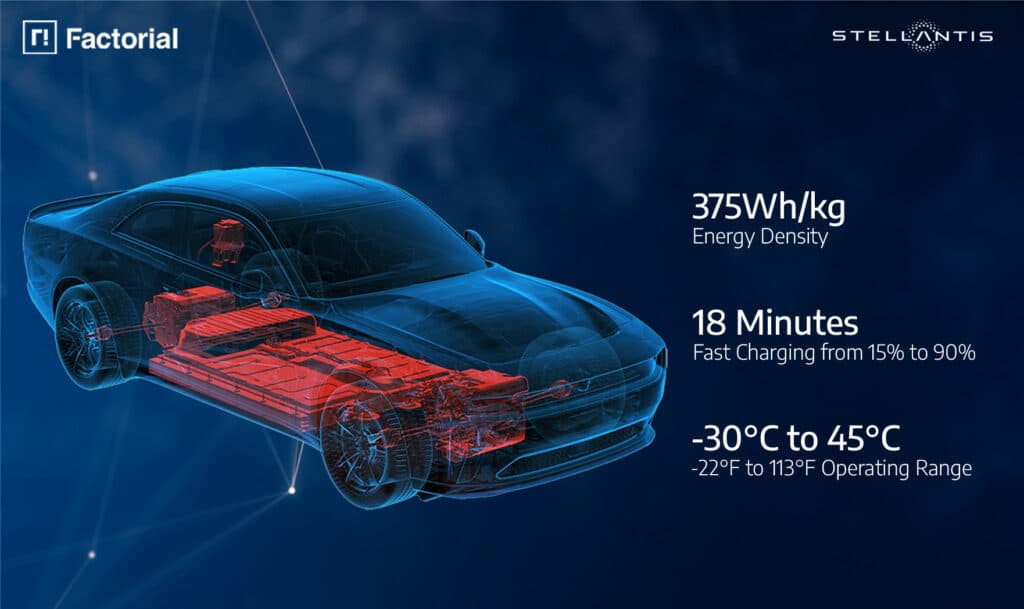Stellantis and Factorial Announce Key Milestone in Solid-State EV Battery Development
Stellantis and Factorial Energy made a major announcement for EV batteries on April 24, 2025. The companies reported that they’ve successfully validated a powerful new solid-state battery cell—bringing the industry one step closer to batteries that are safer, faster-charging, and longer-lasting than today’s lithium-ion models.
The 77Ah FEST® (Factorial Electrolyte System Technology) solid-state battery cells achieved an impressive energy density of 375Wh/kg, withstanding over 600 charge cycles—a milestone in scaling lithium-metal solid-state technology to automotive size. But the real headline? These cells can charge from 15% to over 90% in just 18 minutes at room temperature. That’s a huge leap over conventional batteries, offering a potential solution to one of EVs’ biggest bottlenecks: slow charging.
“Reaching this level of performance reflects the strengths of our collaboration with Factorial,” said Ned Curic, Stellantis Chief Engineering and Technology Officer. “This breakthrough puts us at the forefront of the solid-state revolution, but we are not stopping there. We continue working together to push the boundaries and deliver even more advanced solutions, bringing us closer to lighter, more efficient batteries that reduce costs for our customers.”

Factorial’s latest breakthrough isn’t just about energy density and speed—it’s about real-world performance. The batteries are engineered to operate in a broad temperature range—from -30°C to 45°C (-22°F to 113°F)—thanks to a new electrolyte formulation developed using AI-enhanced tools. This opens the door for EVs that perform reliably across harsh climates, from icy northern winters to scorching desert summers.
In close collaboration, Stellantis and Factorial have also been working on optimizing the battery pack design to reduce weight and improve efficiency—enhancements that will translate directly into longer range and lower costs for drivers. The reduced pack weight supports sustainability goals while making EVs more practical and affordable across the board.
“Battery development is about compromise. While optimizing one feature is simple, balancing high energy density, cycle life, fast charging, and safety in an automotive-sized battery with OEM validation is a breakthrough,” said Siyu Huang, CEO of Factorial Energy. “This achievement with Stellantis is bringing next-generation battery technology from research to reality.”
This milestone builds on Stellantis’ $75 million investment in Factorial back in 2021 and deepens the strategic partnership as they move toward real-world implementation. The next step? Stellantis plans to roll out a demonstration fleet equipped with Factorial’s solid-state batteries by 2026, beating BYD’s goal of 2027. This fleet will allow the company to test the technology in real-world driving conditions—crucial for final validation before mass production.
As the auto industry races toward an all-electric future, innovations like this one bring us closer to EVs that don’t compromise on performance, range, or convenience. With solid-state batteries on the horizon, the electric revolution is about to get a whole lot more exciting.

Electric Vehicle Marketing Consultant, Writer and Editor. Publisher EVinfo.net.
Services